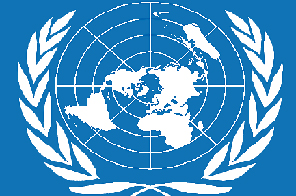UN pushes draft Iran nuke deal
VIENNA: The UN's atomic watchdog on Wednesday handed Iran and world powers a draft deal that could dramatically ease tensions over the Islamic republic's controversial nuclear programme.
The agreement was drawn up after crunch talks between Iran, Russia, the United States and France, and has been sent to the capitals for approval by Friday, said Mohamed ElBaradei, the head of the International Atomic Energy Agency (IAEA).
ElBaradei declined to reveal any details about the draft document, but diplomats said it included demands that Iran ship out most of its stockpile of low-enriched uranium for further processing by another country.
The US, Russia and France had insisted on the point, because it would allay fears that the uranium -- which Iran's hardline rulers have produced in defiance of the United Nations -- could be used to build an atomic bomb.
"I have circulated a draft agreement that reflects in my judgment a balanced approach on how to move forward," ElBaradei told reporters.
"The deadline for parties to give, I hope, affirmative action is Friday."
"I would cross my fingers that by Friday we should have an OK and an approval by all the parties concerned."
Russia, France and the US have all been pushing Iran to move forward an agreement -- reached in principle in Geneva on October 1 -- under which Tehran would ship 1,200 kilogrammes of its own stockpiled uranium to Russia, and subsequently France, by the end of the year.
But ElBaradei did not reveal whether Iran had finally agreed to that key point after three days of talks in Vienna. Tehran had also made it clear that it did not want France to be part of any deal.
Iran has also insisted it wants to master the entire nuclear fuel cycle itself, rejecting past offers for the ultra-sensitive enrichment process to be conducted abroad.
The head of the Iranian delegation, IAEA ambassador Ali Asghar Soltanieh, said only that Iran would be in an position to "get the fuel" for an Iranian research reactor which makes isotopes for medical uses such as cancer treatment.
"All the details will be revealed Friday," Soltanieh told reporters, describing the outcome of the talks this week as "very positive".
Western powers suspect Iran has embarked on research to build a nuclear bomb. Iran has denied the claims, but has been accused by the IAEA of not cooperating with efforts to determine whether its atomic programme is peaceful.
"We just concluded a meeting of two-and-a-half days, on (the) modalities and how to ensure that Iran will have the fuel required for its research reactor," ElBaradei said.
"That research reactor is used for producing medical isotopes for diagnosis and treatment of cancer, so it's a purely humanitarian mission, objective."
A key confidence building measure on Iran's part would that no enriched uranium be "manufactured into fuel," ElBaradei said.
"That can defuse a crisis that has been gone on for a number of years."
ElBaradei called on everyone concerned to "see the big picture and see that this agreement could focus the way for a complete normalisation of relations between Iran and the international community.






